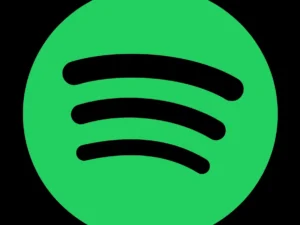Feature: Spotify In The Spotlight

Music streaming giant Spotify is facing down an industry-wide push to change how they pay artists for their content.
Spotify has developed an unhealthy reputation for underpaying artists, paying an average of $0.004 per stream. According to Creative Australia, Australian artists earn a mean annual income of $54,000, 26% below the national average.
The industry mechanisms of royalty payments can be complex in terms of how the money earned for a song is distributed between songwriters, publishers and record labels.
Whenever a song gets played in public – be it on the radio, licensed for a TV show, at a festival, in a bar or via a streaming service – it earns royalties that are paid to the respective parties. Royalty payments in Australia are managed and administered by APRA AMCOS.
Spotify don’t pay artists royalties on a per stream rate but according to how their music is streamed as well as agreements with labels and distributors. Top-tier artists such as Taylor Swift and Ed Sheeran who are heavily promoted amass billions of streams for their music earn millions. Under this model, independent and emerging artists are often disadvantaged, barely earning enough from Spotify in a year to cover the cost of a pub lunch.
In a further blow, Spotify recently revised its royalty payment policies under the guise of protecting their royalty pool from being drained by artificial streaming bots. The new rules stipulate artists must get 1000 streams in 12 months before being eligible for payout of royalties.

Spotify CEO Daniel Ek
Spotify CEO Daniel Ek – the man who successfully monetised music distribution in the 21st century – was recently summoned before a committee hearing in the US to face questioning about how Spotify pays its artists. Spotify’s own data reveals artists outside the top tier earn an average of $12 a month.
Meanwhile, Ek made more money from Spotify in the past 12 months than their highest streamed artists, raking in a whopping $345 million through the sale of company shares. That’s equal to 115 billion streams, which would make him Spotify’s highest paid and most successful artist, if he was one.
Ek then doubled down with a monumental tone deaf statement, remarking that the cost of creating content was ‘close to zero’, earning the ire of creators around the world.
Rethink your packaging and transport solutions with MADCAP Global Commodities & Agri-Business.

The advent of Spotify and other music streaming platforms caused a major disruption to the well-established status quo of the recording industry, forever altering how music is accessed and consumed.
Previously, major record companies held dominant control over the recording and release of an artist’s work. The label would invest in the future success of an artist by paying them an advance to develop publishable content, often with strict oversight and little concession to creative freedom.
The digital era brought with it new opportunities that allowed artists, particularly independent and emerging artists existing below the eyeline of major labels, to subvert the traditional structure and regain some control over their work. However, Spotify has become another gatekeeper of the recording industry.
The situation didn’t change, it just got a fancy facelift for the new generation. Spotify operates as the most basic and lazy breed of unscrupulous profiteers: the middleman – profiting from artists while investing little to nothing in their creative development.
For independent and emerging artists, streaming is a double-edged sword. It allows them to release music without the backing of a major label and the contractual obligations that come with it. But it also presents a fresh set of challenges to overcome, along with an added level of red tape to detangle before they earn a decent living for the art they create for our enjoyment.
MADCAP Global Packaging & Geo-Fabrics supplies diverse packaging solutions to meet the demands of your business.


